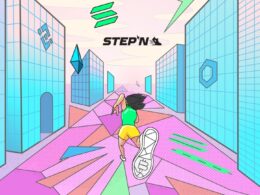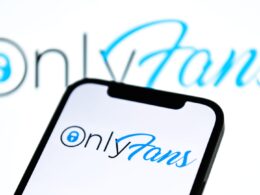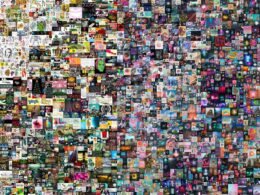In this article we’re going to explore music NFTs and answer the following question. Do they have massive potential or not? Many people are looking for the next BAYC but what if you’re looking in the wrong place? What if it’s not another jpeg collectible but rather a whole new type of NFT like a music NFT? One thing we know for sure is that if you want to make a lot of money in crypto, you have to find a niche before it goes mainstream, so let’s see if music NFTs could be such a niche.
The vast majority of NFTs right now are jpegs or picture NFTs, but they don’t have to be because NFTs are a flexible technology. The non-fungible token can point to anything like an audio file for example. As for what it means for an NFT to be tied to a music file, here’s a few things that are possible. 1) it could represent ownership of a song on the blockchain. 2) it could represent ownership of a specific element in a song such as a stem or 3) it could represent a share of royalties for some particular song.
Whatever it’s used for, all I know is that this is a new tool for musicians to make money and connect with their audience. Because there are so many different approaches to music NFTs, it’s no surprise that there’s a lot of different platforms too.
For example, you got Royal.io, where you can own a piece of your favorite songs, cut the royalties, and get other perks that the artist includes.
Sound.xyz, which has a special listening party feature, where you can listen to new songs as they are debuted to a live audience. And you can buy NFTs to prove that you are there.
Catalog.works, which is focused on one of one NFTs, this is a more personal and intimate approach than selling like 10,000 NFTs for your album.
Finally, there is Fanfare.fm, which is pretty standard, it’s like Rarible for music NFTs. But it’s on the flow blockchain so it has cheaper gas fees. There’re actually more options out there but these are just a few I wanted to highlight.
Now that we understand what music NFTs are and some of the different flavors out there, let’s talk benefits. Like why musicians and fans would even want to use music NFTs in the first place? Well, currently music streaming is the dominant business model in this industry. Musicians put their songs on platforms like Spotify, and they get paid every time someone listens to their song. The issue is you get paid peanuts for each stream, like a few years ago it was $0.00397 dollars per stream on Spotify, which means you have to get 250 streams before you earn a freaking dollar.
As you can imagine this is terrible for smaller artists, they struggle to earn enough money to make a living through this model. But with music NFTs this could change everything, you don’t necessarily need millions of fans to make money now. Instead, you can release your songs with music NFTs attached, and make a good amount of money by targeting the right people. This is the whole 100 true fans thesis, like you don’t expect everyone who listens to your music to buy your NFTs but as you work up this pyramid, you get to the smallest group up top which are your most loyal fans. With their dedication, you can make enough money to support yourself while you cultivate a relationship with them.
This is actually very similar to Patreon, but with this model fans get a collectible that they can show off and trade. Also, these NFTs are programmable so they could integrate fan contributions in some way or even share royalties with the holder. Besides streaming, musicians can also make money by selling physical merchandise, or by throwing concerts. But music NFTs are arguably better than these options because they are digital so they can have way less overhead than merch. They’re also way more scalable because for concerts you can only be in one place at a time, but with music NFTs you can sell to all your fans around the world at the same time.
What we know for sure is that the music industry is dominated by rent seeking middlemen such as record labels, publishers, etc. But with these NFTs musicians can go directly to their audience and capture more value for themselves. If NFTs were able to change the lives of underpaid and underappreciated artists, then why can’t it do the same for musicians. This isn’t just theory; we’ve already seen some visionary musicians put out their own music NFTs.
Famous rapper NAS dropped two singles on the Royal platform that I mentioned earlier, Snoop Dogg also released his album as an NFT in the form of a stash box. He made this with Gala Games and if you own one you get special airdrops like images, comics, films, and concert opportunities too. If you somehow manage to buy all 17 of those then you get an exclusive concert a party at Snoop’s mansion, limited edition bling, and a lot of other cool stuff like that.
Then there’s 3LAU, a famous DJ who just happens to be a co-founder of the Royal platform. He launched some music NFTs representing his Ultraviolet album before. Finally, there’s Kings Of Leon, who launched their album and also made it available as an NFT on the same day. Which turned out to be incredibly profitable for them.
By now you get the idea that this is great for musicians, but what about us fans? Fortunately, these bring some unique benefits for us too. For example, these NFTs have great collectible appeal. It’s similar to owning the vinyl for an album you like, but with NFTs you can easily show everyone that you have great taste. Because you can prove that you discovered a musician before they blew up, the receipt is straight up on the blockchain. Also, if you hold certain music NFTs you could get access to special experiences, like live debuts.
It’s up to the musician as to what they include as perks, but they have all the incentive to pack it with benefits because they get a cut of each trade or resale. The more demand there is the more passive income that they get.
Now before you rush to scoop up all these music NFTs, hold up because there are definitely some hurdles and disadvantages we have to consider.
First of all, what does it mean to own a song by holding this NFT anyways? After all people can still listen to the song as they please. In terms of royalty sharing that’s all fine and dandy, but it’s actually incredibly difficult to enforce, legally speaking. You got to get permission from every party involved like your label, publisher. Also, experts say that it’s unlikely that your royalty sharing program will be recognized by the law if it only exists on chain. Furthermore, anyone can create an NFT and point it at a song, but how do you verify that the creator of that NFT actually owns the real-world copyright behind that song?
This is going to be a massive challenge for these music NFT platforms to tackle, and then most of these platforms are still super small so it’s not great for discovery. Small artists are going to have a hard time building an audience unless they go to the bigger streaming platforms. Finally, all these platforms with different approaches means that the audience for music NFTs is incredibly fractured. That’s going to make it hard for this niche to grow unless we have one platform become the OpenSea for the space and consolidate everything.
With all of this in mind how promising is this niche for investors? I have mixed feelings about music NFTs as an investment. On one hand music is much more popping of an industry than fine art, there’s millions of real fans out there, so it’s not just rich people who want to store value, the potential market demand is massive. But on the other hand, this feels different from the jpeg NFTs that have rocketed in the past.
Music NFTs are more top-down, like they’re centered around a musician and the NFT is valuable if they make it valuable, whereas jpeg NFTs are more bottom-up. The artist or team puts out the collectibles but then a community forms around it and helps evolve it into something bigger. My thesis is that this structural difference will hold back music NFTs and will make it harder to find a BAYC or CryptoPunks in this niche as compared to picture NFTs. But that’s just my opinion, it’s definitely super early. Maybe the musicians will surprise me as to what they do with this new technology.








